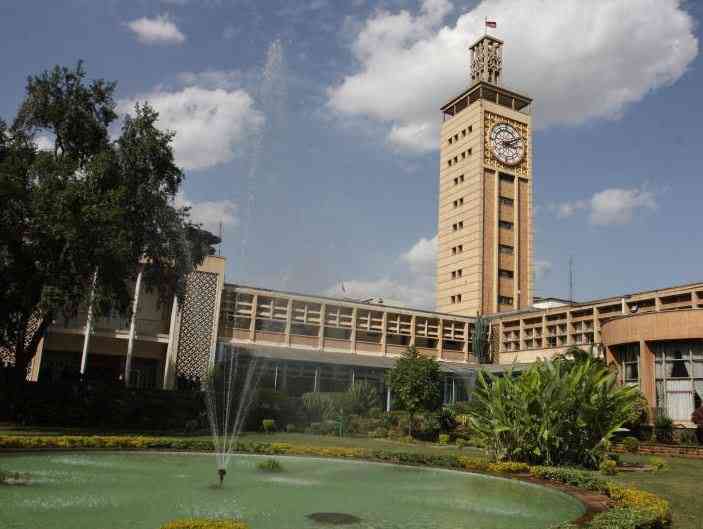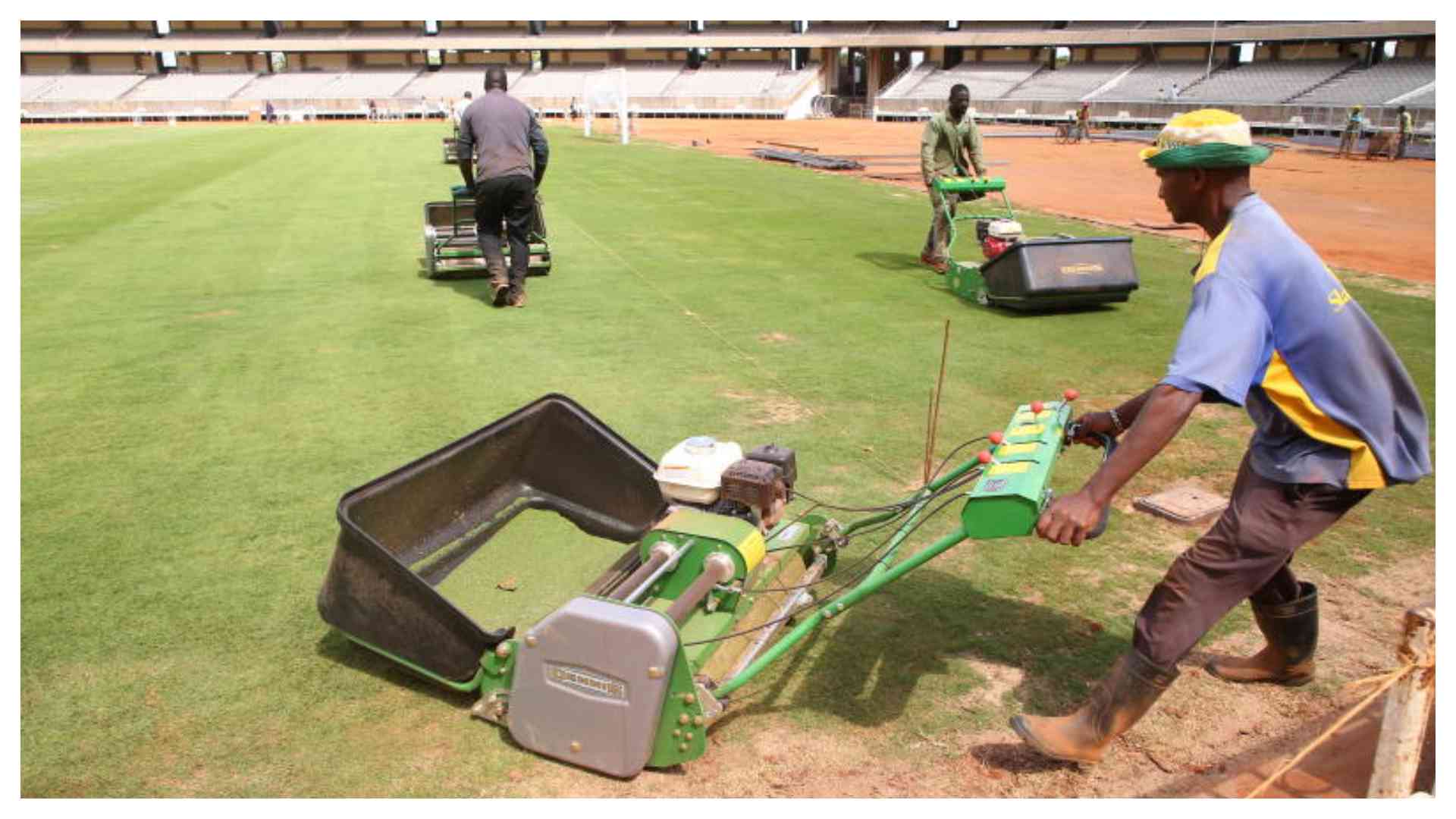A year ago, John Ouma, a taxi driver, went house hunting in Kiserian, a town located on the outskirts of Nairobi.
He wanted a slice of two worlds - a setting with both rural and urban amenities including fresh farm produce and a good coffee house where his young family could visit during weekends.
"I found a one-bed-roomed house in a flat but the kitchen was too tiny," says Ouma. "I think the developer had compromised on space to fit as many units in the small piece of land."
Recently, Ouma was forced to move out of the house as the developer started extending the flat upwards, likely by colluding with corrupt county officials.
Many tenants in and around the city find themselves in a predicament similar to that of Ouma, where they are forced to live in improper housing units that, unbeknown to them, might even compromise their safety due to poor workmanship.
Last week, the Architectural Association of Kenya released the 2023 Status of the Built Environment (SBE) report that among other things, seeks to address "development control challenges, affordability of adequate and decent housing, cost of construction, infrastructure development, climate change and resilience, social equity and inclusion, and status of the emergent built environment professions."
One of the key concerns in the report is the poor construction regime that has over the years led to a collapse of residential buildings under construction especially in the city. The architectural body used data from the National Building Inspectorate (NBI) that showed the extent of unregulated construction projects.
According to the most recent building audit conducted in 2018, a total of 14, 895 buildings were assessed with only 2,194 found to be safe for human occupation. Of the total buildings audited, 723 were found to be extremely hazardous while 10, 791 needed to be demolished or reinforced before occupation.
Of concern to AAK was that around 80 per cent of construction projects in Kenya rarely involve the services of qualified personnel such as architects, quantity surveyors, structural engineers and registered contractors.
According to Michelle Ouma, a research officer with AAK, poor construction practices have made many Kenyans appear to be sitting ducks as they live in houses that barely meet the basic parameters of a sound structure.
"It is a combination of many factors. Many people have the notion that professionals are expensive. Kenyans would rather say to a fundi, 'make me a house like that one', pointing to a friend's project. While there are cost implications of involving professionals early on in your construction, you have to look at it in terms of gains and losses. The professional costs will save both your life and that of the building occupants," says Ouma.
Ouma says the problem of unsound residential buildings cannot be solved by AAK members alone but requires a multi-agency approach incorporating county governments where the bulk of building approvals emanate from.
The architectural body has empowered the public to take action through the Mulika Mjengo initiative where individuals, through anonymous submissions, can report structures with structural flaws such as inadequate foundations, poor workmanship, and non-compliance with statutory requirements.
Out of the received reports, 86 per cent are from Nairobi and 14 per cent from Kiambu. Majority of the reported cases, over 70 per cent, are linked to residential projects, "indicating a widespread issue compromising the safety and integrity of homes."
Ouma says some people would be willing to use the professionals but there are few to go around.
Since its inception in 1934, the Board of Registration of Architects and Quantity Surveyors (BORAQS) only has 1,500 registered architects against a population of 50 million with the resulting void filled by unscrupulous people. "There may be more people trained as architects by choosing to go to other disciplines. It is also expensive to train architects and the government can only take a specific number at any given time," says Mwonger Rukaria, Boraqs chief executive.
Compounding the problem is the fact that most county governments have been unable to enforce building control policies, and lack clear guidelines and standards for modern construction. For example, zoning guidelines for Nairobi expired in 2014, leading to the haphazard construction of high-rise buildings in Kilimani, Kileleshwa, and Lavington suburbs.
"We may have the Nairobi Integrated Urban Development Plan that seeks to decentralize Nairobi yet the master plan needs the smaller physical plans for every neighbourhood. Then we have Kenya's Building Code which was enacted in 1968 when our needs and challenges were different. It is always 'under review' over the years but authorities only 'swing into action' when a building collapses," says Ouma.
Unfortunately, according to Ouma, even formerly 'progressive' counties such as Kiambu that had elected to use online building approval systems, have once again reverted to manual systems with many approval applications from professionals in the industry pending.
"Why should we have 47 different systems that serve the same purpose? Why not have a standardised system of building approvals?" poses Ouma.
Is there an end to the haphazard construction in Kenya or will such reports continue dominating the sector for years to come?
"It is a problem AAK cannot solve alone," she says. "In the meantime, we have created basic guidelines, the Healthy Homes Guidelines and Checklist that Kenyans can use to see if the home they live in meets the basic pillars of a sound building. This should be used when one is looking for a house to rent. You can take personal initiative to move out or talk to the landlord if you find any anomalies."
 The Standard Group Plc is a multi-media organization with investments in media
platforms spanning newspaper print operations, television, radio broadcasting,
digital and online services. The Standard Group is recognized as a leading
multi-media house in Kenya with a key influence in matters of national and
international interest.
The Standard Group Plc is a multi-media organization with investments in media
platforms spanning newspaper print operations, television, radio broadcasting,
digital and online services. The Standard Group is recognized as a leading
multi-media house in Kenya with a key influence in matters of national and
international interest.
 The Standard Group Plc is a multi-media organization with investments in media
platforms spanning newspaper print operations, television, radio broadcasting,
digital and online services. The Standard Group is recognized as a leading
multi-media house in Kenya with a key influence in matters of national and
international interest.
The Standard Group Plc is a multi-media organization with investments in media
platforms spanning newspaper print operations, television, radio broadcasting,
digital and online services. The Standard Group is recognized as a leading
multi-media house in Kenya with a key influence in matters of national and
international interest.







